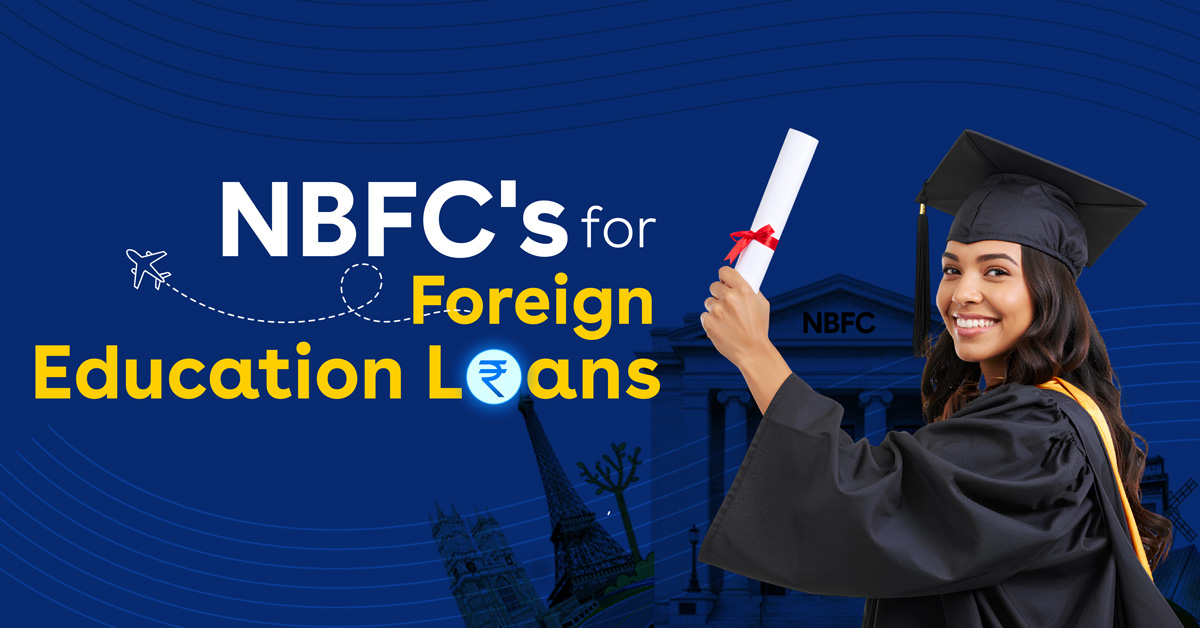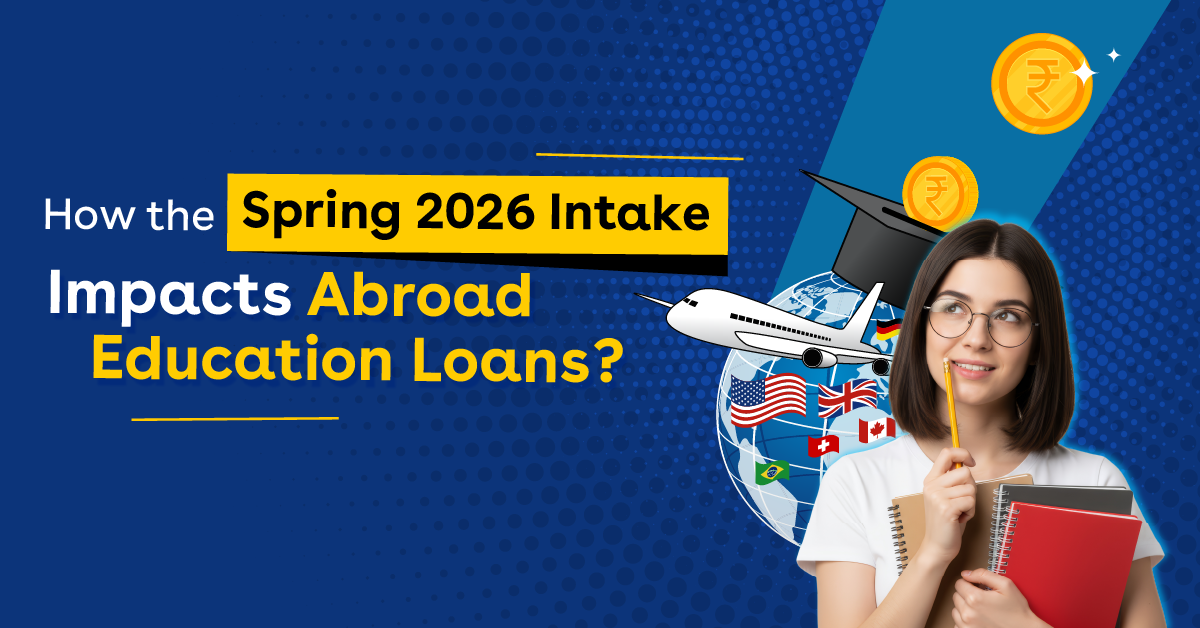Jun 13, 2025
Abroad Education Loan for Nigerian Students through International Lenders
Attend Study Abroad Loan FairOften called the Giant of Africa, Nigeria truly lives up to its name! Not just in terms of population or economy, but also when it comes to students going abroad for higher education. Visit any university around the world, and you will find ambitious Nigerian students there. Just like how a baobab tree spreads its branches, these students reach out across continents to grow their knowledge.
While many are drawn to studying abroad to gain a fresh learning experience, meet people from different cultures, or build international careers, there are also some push factors in Nigeria, like economic instability, falling value of the Naira, limited global recognition of local universities, and fewer career prospects.
Also, as a growing country, writing a cheque for foreign education isn't easy for every Nigerian family. They need help with funding, like sponsors, scholarships, or an abroad education loan for Nigerian students. So let us take a closer look at all the funding options available for Nigerian students.
Table of Content
Popular Funding Options & Abroad Education Loan Scope for Nigerian Students
A popular Yoruba saying goes, "Agbara ti o ba di agbado, yoo fi si"—meaning, the one who has a strong grip will take the best out of the opportunity. Nigerian students do exactly this once they get that grip on their higher studies abroad. How? With the right funding support from any of the options listed below, and don’t just earn a degree but go further by sending money back home, starting businesses, and helping Nigeria stay in the race as one of Africa's Top 5 Economies.
Support from a U.S. Co-Signer
If students have a trusted family member or friend with a Permanent Residency or Green card in the USA who is willing to co-sign for the student loan, it can open up the door to more loan options and lower interest rates. But finding a USA co-signer would be rare.
Private Sponsorship
Some lucky, students can get help from private sponsors, like local companies, religious groups, or even influential individuals. But this type of funding will not be very common as Nigeria doesn’t have that robust corporate sector.
Community and Alumni-Based Support Networks
We all know that Nigerian people stick together even across oceans! Nigerian student communities and alumni abroad come together to support newcomers through donations or informal funding groups. This is another way to try for funding, but the question is how many students can they fund? Well, just a few!
Few Merit-Based and Need-Based Scholarships
Scholarships are like rare diamonds - hard to find, but life-changing when they do! Nigerian students can check their eligibility for scholarships and also check if there are any specific scholarships for their nationality. Different types of scholarships can cover living expenses, tuition fees, and some even flight costs! But as told, competitive and rare to find!
International Education Loan Providers
International lenders understand the financial challenges of Nigerian students and offer overseas education loan without collateral that are based on their future potential and not their current finances. This is a big help, for the Nigerian students don’t have an asset for collateral or a co-signer.
If we look closely at these five options, we understand that not all of them are easy to get. For example, many bright students compete for scholarships, community and alumni support is very limited, and not every Nigerian student has close family already living in the USA, so getting a US co-signer is tough, too.
So, one option that stays open to almost all Nigerian students is getting an education loan without collateral and without a co-signer, which indeed is only offered by International Lenders. Let us see a few more reasons why this option is most viable.
Abroad Education Loan by International Lenders- Why a Preferred Option for Nigerian Students?
Private or Government-backed Nigerian banks do not give loans without collateral. But international lenders? They are a different story. Honestly, they are even more beneficial than other options. Here is how.
Loan Disbursed Directly to the University
The funds go straight from the lender to the university, eliminating any currency conversion hassles on the student’s end. This direct payment system brings peace of mind, and universities appreciate receiving payments on time without international transfer complications.
Flexible Repayment Options
Most international lenders understand that students won't start earning immediately after graduation. So, they usually offer grace periods of 6-12 months to find employment before repayments begin. Some even adjust the monthly payments based on the income level, making it possible to manage repayments without feeling financially strangled.
Available for a Wide Range of Study Destinations and Courses
International lenders support higher education in almost all popular destinations like the UK, US, Canada, Australia, and now increasingly, in European and Asian countries by providing education loan for international students. This means the choice of university isn't limited. With this, students can pursue, say, Engineering in Germany, or a Business Degree in England, or a Computer Science degree in the USA, anything! All up to them!
No restriction on Co-Signer Nationality
International lenders usually don’t ask for a co-signer while offering an abroad education loan. Even if they do, they are not strict about the person being from a specific country—this gives students more flexibility.
Fully Digital Process
From loan application to getting the sanction letter, it is all online. No long queues, no endless paperwork. Just a smooth process that saves time and energy—something every international student truly values.
Professional Guidance throughout the Process
Beyond the Abroad Education Loans for Nigerian students, international lenders provide some additional support services as well. Many Education Finance Advisors help Nigerian students with application strategies, visa documentation advice, loan repayment planning, and even career planning. This additional guidance can be invaluable when navigating the complex journey of studying abroad for the first time.
There are a few other key factors as well that Nigerian students should check before moving ahead.
Abroad Education Loan by International Lenders for Nigerian Students: Key Factors
From the prime university listing to the intake availability and more, below listed are the key factors to check as a Nigerian student that are set by international lenders for study abroad loan.
Study Level: Nigerian students planning to study abroad can get an education loan only for a Master’s Degree, and not for Bachelors or Diplomas from International Lenders.
University Listing: International Lenders have a specific list of prime global universities they would provide a loan for. So, Nigerian students need to make sure that their dream university is on that list, because if it is not there, the loan simply won’t happen.
Campus Listing: Even if the preferred university is on that list, Nigerian students need to double-check which of its campuses are covered. Lenders sometimes fund only certain campuses, not all. Yes, it is that specific!
Intakes: Did you know loans aren’t always open for every intake? Sometimes, if too many students apply for a particular intake, the lender may close that batch and shift focus to the next one. So, always keep a backup intake in mind.
Course Type & Tenure: Loans by international lenders usually don’t apply to part-time or online courses. Only full-time, on-campus master’s degrees are considered.
All these factors need to be considered before the application process, and also, all these factors need to be aligned. Now, it is finally time to list down the popular lenders that provide non-collateral loans to Nigerian students.
Leading International Lenders providing Abroad Education Loan for Nigerian Students
While we know that no Nigerian Banks (private or public) offer non-collateral or non-cosigner loans to Nigerian students, thankfully, there are two trusted international lenders that say, ‘go and dream big, we are here for you!’
MPower Financing
Based in Washington, D.C. and established in 2014, MPower Financing has become a go-to option for many international students. Why? Because they have simplified the whole process—100% online, no cosigner, and no collateral needed.
Offers loans for over 500+ Universities in the USA and Canada.
Open to students from 190+ Countries.
77% of borrowers say they wouldn’t have been able to study abroad without MPower.
A whopping 96% students feel satisfied with the service.
Prodigy Finance
Launched in 2007 by three students from INSEAD, Prodigy Finance has grown into a major name in international student lending. Its standout feature? Wide coverage and flexibility.
Covers 492 Universities across 19 Countries, including the US, the UK, and more.
Supports over 1,800 Global Institutions with eligible programs.
Has already helped 45,000+ students from 150+ countries.
Offers loans up to $220,000 with no collateral and no hidden charges
At first glance, both MPower Financing and Prodigy Finance seem like great options for Nigerian students. But when we research a little deeper, we will know that both have key differences, which will vary depending on the student’s needs. Especially when it comes to education loan interest rate, loan amount, countries covered, age restrictions, repayment flexibility, and a lot more. Let’s analyse in detail.
Abroad Education Loan for Nigerian Students: MPower Financing vs Prodigy Finance
To help Nigerian students make the right choice, below is a side-by-side comparison of both the popular International Lenders – MPower Financing and Prodigy Finance:
|
Criteria |
MPower Financing |
Prodigy Finance |
|
Countries Covered |
Only the USA & Canada |
USA, UK, Canada, Australia, France, Switzerland, and Singapore. |
|
Loan Coverage |
Tuition + Living Expenses (only for selected US Universities) |
Tuition + Living expenses for selected universities across countries |
|
Upfront Fees |
No upfront charges, free sanction letter |
$500 upfront for the sanction letter, other costs applicable |
|
Loan Amount |
Up to $100,000 total funding |
Up to $220,000 total funding |
|
Interest Rate |
Starts from 12% – 18% |
Starts from 12% |
|
Moratorium Period |
6 months post-graduation (only principal is deferred) |
Up to 2.5 years (2 years course + 6 months job search period) |
|
Tenure |
10 years |
Flexible options: 7, 10, 15, or 20 years |
|
Processing Fee |
5% on each disbursement |
4% on each disbursement |
|
Age Limit |
No age limit |
Max age: 32 years |
|
Loan Disbursement |
On getting visa & upon reaching the destination |
On getting visa & upon reaching the destination |
|
Pre-payment Charges |
None |
None |
While the interest rate depends on the loan tenure, many don’t realize that some lenders also offer helpful additional benefits like university counselling, career support, and placement assistance. But in the middle of the confusing loan process, students often miss out on these benefits.
That is where Élan Overseas Education Loan makes a big difference. The team guides students through every step, from choosing the best bank for education loan for abroad studies to understanding terms and conditions. Think of them as your study-abroad support system, so you can focus on your goals, not just the finances.
With Élan by your side, you don’t just apply for a loan — you prepare for a smoother journey ahead.
FAQs
1. How is the loan amount disbursed by international lenders to Nigerian students?
The loan amount is disbursed directly to the university, ensuring timely fee payments and avoiding currency conversion challenges for students.
2. What is the repayment structure for education loans offered by international lenders?
Most international lenders offer flexible repayment options with a grace period ranging from 6 months to 2.5 years post-graduation, depending on the course duration and lender policies.
3. Are there any age restrictions for Nigerian students applying for international education loans?
MPower Financing has no age limit, whereas Prodigy Finance generally has a maximum age limit of 32 years at the time of application.
4. What support services do international lenders provide apart from disbursing loans?
Beyond funding, international lenders often offer career guidance, visa document support, university counselling, and loan repayment planning, which helps students navigate the study abroad journey more confidently.
5. Does Élan Overseas Education Loan support Nigerian students in availing Overseas Education Loan from International Lenders?
Yes, Élan Overseas Education Loan helps Nigerian students explore and secure overseas education loans through international lenders. The experts offer personalized guidance by reviewing the student’s profile, comparing available options, and recommending the most suitable loan choices based on individual needs.

- Share this Article
Articles on Overseas Education Loans

NBFC Foreign Education Loans vs Banks
As the number of Indian students wishing to go abroad increases..Feb 02, 2026

Pre Visa vs Post Visa Study Abroad Loan Disbursement
We all can recall the scenes from heist movies...Jan 30, 2026

How Spring 2026 Intake Impacts Abroad Education Loans
With the commencement of 2026, the Spring intake starts....Jan 30, 2026

 Login
Login